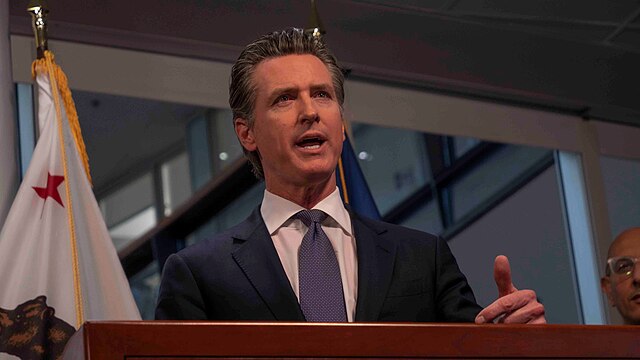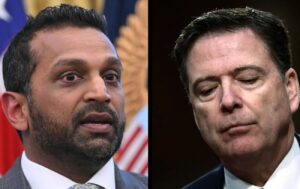Lead
As speculation builds about whether California Governor Gavin Newsom will enter the 2028 presidential race, an old scandal from his San Francisco mayoralty has returned to the headlines — the 2007 revelation that Newsom had an affair with Ruby Rippey Gibney, who at the time worked in his office and was married to his close associate Alex Tourk. The episode ended with a high-profile resignation, public apologies and long-lasting questions about judgment, workplace boundaries and political vulnerability.
The affair and immediate fallout
The affair surfaced publicly in early 2007, when reporting revealed that then–Mayor Newsom had been involved with Ruby Rippey Gibney, who served as his appointments secretary while married to Alex Tourk, a longtime friend and campaign aide. The disclosure prompted Tourk to step down from his role, and Newsom issued an on-camera apology acknowledging the relationship and its consequences for people close to him and for the public’s trust.
That apology was explicit: Newsom acknowledged the truth of the reports, expressed regret for the personal damage caused to Tourk and others, and pledged to work to restore public confidence in his leadership. The scandal dominated local headlines, drew national attention, and became fodder for comedians and political opponents — an early public-relations crisis that tested Newsom’s political resilience.
How the story has aged — from local scandal to national liability
At the time, the episode was treated largely as a local political meltdown: a mayor’s private indiscretion with painful personal fallout for friends and staff. Over the years, however, the context around workplace relationships changed significantly. Movements such as #MeToo shifted public scrutiny toward power dynamics and workplace consent, and what previously might have been dismissed as a private moral failing is sometimes now evaluated as a structural problem — particularly when the relationship involves a superior and a subordinate. That reframing makes the old story more combustible should it reappear during a national campaign.
Notably, Ruby Rippey Gibney has publicly weighed in on the matter in later years, at times suggesting the situation did not fit the pattern that #MeToo was created to expose. Her statements complicated a simple narrative of workplace abuse, but they did not fully erase the political optics of a mayor who had entered a relationship with a staffer while surrounded by close personal ties. The mixed public record — admission and apology from Newsom, public statements from Gibney, and Tourk’s resignation — leaves a dossier that opponents and the media can mine during a high-stakes national campaign.
Why the affair matters now: electability, trust and the national spotlight
Any presidential campaign lives and dies on narratives of character and competence. For many voters, personal conduct is a proxy for judgment. A revived scandal from nearly two decades ago can be used to raise questions about consistency, transparency and how a candidate treats people in their orbit — particularly subordinates. Given Newsom’s profile as a potential 2028 contender, that old episode is no longer just a Bay Area memory: it’s political baggage that can be amplified in national debates, attack ads and cable coverage.
Opponents can frame the affair in several damaging ways: as evidence of poor personal judgment; as proof that Newsom places personal desires ahead of professional responsibilities; or — in the #MeToo era — as an example of problematic workplace dynamics. Even if many voters ultimately focus on policy and performance, the resurfacing of a well-documented personal scandal complicates message discipline and campaign strategy.
The modern context: aggressive rhetoric and political risk
The personal scandal is only one piece of the contemporary puzzle. In recent months, Newsom’s rhetoric has grown noticeably more combative as he has confronted national political battles — including disputes over redistricting and clashes with Republican-led states. In August 2025 he used blunt, profane language on a podcast to describe a hardline response to what he called “radical rigging” of congressional maps, saying, “We’re going to punch these sons of b*****s in the mouth.” Comments like that can energize a political base, but they also increase the stakes: when a candidate’s past missteps resurface, critics can tie them to present-day temperament and judgment questions.
From a media-management perspective, the combination of a revived personal scandal and aggressive public language forces a campaign to run on two fronts at once: damage control on character issues and message discipline on policy fights. Each front amplifies the other, because opponents can argue that a candidate who once engaged in an affair with a subordinate and today resorts to incendiary rhetoric is unfit for national leadership.
Potential defenses and counterarguments
Newsom’s path to neutralizing this issue is straightforward in structure, if not easy in practice: acknowledge responsibility, emphasize demonstrated governance and policy achievements, and pivot to substantive issues that voters care about. Over the past decade and a half he has rebuilt a career: serving as governor, delivering on high-profile executive actions and fundraising aggressively. Supporters will point to his record on climate, housing initiatives, pandemic response and other governance matters as evidence that the past mistake did not define his capacity to lead.
Additionally, people involved in the original episode, including Ruby Rippey Gibney, have at times resisted labeling the matter strictly as workplace abuse, which complicates a simple opponent narrative. That ambiguity can blunt the force of accusations that frame the affair as an archetypal #MeToo violation — but ambiguity also leaves room for persistent negative coverage.
What campaign strategists will watch
If Newsom pursues a national campaign, advisors will need to do two things immediately:
-
Prepare a clear, consistent statement that acknowledges the past, expresses responsibility, and frames it as a personal failing addressed long ago — while steering the conversation to tangible policy wins and plans for the future.
-
Anticipate opposition lines that connect the affair to power dynamics and the candidate’s more recent combative rhetoric; prepare rapid rebuttals and rapid factual context to prevent the story from defining the early narrative.
Campaign teams must also weigh whether aggressive counterattacks will help or further inflame the controversy; often, the best defense is tightly controlled messaging and allowing the candidate’s record to speak louder than tabloid headlines.
Broader implications for political culture
This episode illustrates a recurring dynamic in modern politics: past personal behavior that once might have been treated as a private scandal can be recontextualized and weaponized in a later, very different media ecosystem. Social movements and shifting norms mean that voters and journalists often judge historical conduct through contemporary standards. That always raises difficult questions about accountability, rehabilitation and whether a voter should base decisions on distant personal mistakes or on recent public performance.
For Newsom and similar figures, the lesson is clear: private decisions can have long political tails, and managing that history with candor and accountability matters more than ever.
Conclusion
The resurfacing of Gavin Newsom’s 2007 affair with Ruby Rippey Gibney is a timely reminder that long-buried controversies can re-emerge as a political candidate’s profile grows. While the episode alone is unlikely to determine a presidential primary, it changes the risk calculus: it forces a potential campaign to manage character narratives as aggressively as it promotes policy achievements. In an era where private conduct and public rhetoric both factor into electability, Newsom — or any national candidate with a similar past — must be prepared to confront the past honestly while making a compelling case about leadership for the future.

Emily Johnson is a critically acclaimed essayist and novelist known for her thought-provoking works centered on feminism, women’s rights, and modern relationships. Born and raised in Portland, Oregon, Emily grew up with a deep love of books, often spending her afternoons at her local library. She went on to study literature and gender studies at UCLA, where she became deeply involved in activism and began publishing essays in campus journals. Her debut essay collection, Voices Unbound, struck a chord with readers nationwide for its fearless exploration of gender dynamics, identity, and the challenges faced by women in contemporary society. Emily later transitioned into fiction, writing novels that balance compelling storytelling with social commentary. Her protagonists are often strong, multidimensional women navigating love, ambition, and the struggles of everyday life, making her a favorite among readers who crave authentic, relatable narratives. Critics praise her ability to merge personal intimacy with universal themes. Off the page, Emily is an advocate for women in publishing, leading workshops that encourage young female writers to embrace their voices. She lives in Seattle with her partner and two rescue cats, where she continues to write, teach, and inspire a new generation of storytellers.









